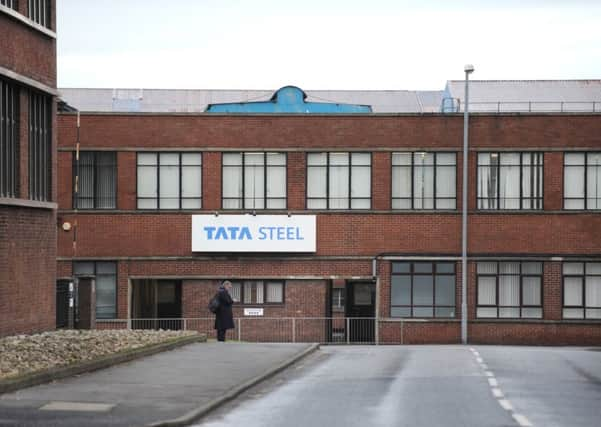Jack Montgomery: Steel crisis made in Brussels


Much of the media commentary has focused on the supposed need for “the government” – whether in Edinburgh, Cardiff or London – to “do more”. Sadly, further losses are inevitable as long as we stick with this superficial view of the crisis, because the root of the trouble lies with our other, too often ignored government in Brussels.
It is remarkable that the European elephant in the room still remains deliberately unaddressed, with the Welsh First Minister even going so far as to claim last week that the terrible problems steel workers face have “nothing to do with” the EU.
Advertisement
Hide AdAdvertisement
Hide AdTo be clear, the UK Steel Summit has identified three key problems faced by the steel industry: high energy costs, the Chinese dumping steel on the export market below the cost of production, and restrictions on state aid.
The first is a product of an energy policy the EU’s own Industry Commissioner warned was creating “a systemic industrial massacre”, with Brussels “sacrificing” jobs “for climate goals that are not realistic, and are not being enforced worldwide”. EU policies had already seen 11 out of 24 aluminium smelters in Europe shut down since 2007 with the industry all but wiped out in the UK. Owners laid the blame for closures firmly at Brussels’ door but little has been done, so we are now seeing the same policy work its destructive way through the steel industry.
The second issue should be actionable at the World Trade Organisation (WTO), since by dumping the unwanted steel produced as a result of over-investment in capacity on foreign markets, China is breaking WTO rules. The problem, as Civitas director David Green has put it, is that “we have given up our right to take action under WTO rules without getting permission from officials in Brussels”.
This is because the EU controls its members’ trade policy and dictates their votes on international trade bodies. Yet Brussels not only seems disinclined to take serious action, it is actively considering granting China “Market Economy Status”. This would, according to the Washington-based Economic Policy Institute, put “between 1.7 million and 3.5 million EU jobs at risk, by curbing the ability to impose tariffs on dumped goods”.
Lastly, we come to restrictions on state aid. The people doing the restricting are in Brussels: Anna Soubry, the UK Minister for Small Business, Industry and Enterprise has blamed “extremely strict” EU rules for the government’s failure to provide an adequate level of support, complaining that “our hands are tied”. This is simply not acceptable.
First Minister Nicola Sturgeon has said “I will do all in my power to save our steel plants”, but instead of tackling the damaging role of the EU head on she has had her Business Secretary concentrate merely on securing a role in negotiations with Brussels. How can it be that a party notionally concerned with independence does not raise the question of why it is necessary to ask the EU for permission to act in the first place?
We need to tailor our energy policy to better suit the needs of energy-intensive industries, because we will not help the environment by decimating British steel and shifting production to countries where environ- mental standards are lower. We need to be able to tackle dumping head on at the WTO, with our independent vote and our ability to pursue an autonomous trade policy restored.
Finally, we need to be able to provide our strategic industries with the aid they need without having to ask anyone for permission first.
Advertisement
Hide AdAdvertisement
Hide AdNone of this is possible while we’re wrapped up in the Brussels straitjacket. It’s time for the politicians, trade unions and media commentators to wake up, stop the grandstanding and address the root of this crisis.